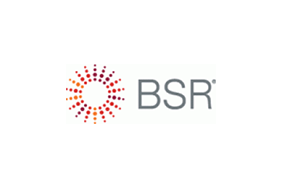New BSR Report Outlines Responsible Business Role in International Labor Migration
Published 11-19-08
Submitted by BSR
SAN FRANCISCO, CA - November 19, 2008 - With more than 90 million people around the world migrating for work every year, labor migrants are often subject to human rights violations such as unsafe work conditions, unfair wages, and cramped and unhygienic living situations. And because these migrant workers often lack knowledge about local resources and legal processes, they don't usually seek help.
International companies are in a unique position to improve conditions for migrant workers by strengthening company codes of conduct, increasing training and verification with suppliers, and engaging with policymakers and other key stakeholders. To aid companies in these efforts, Business for Social Responsibility (BSR) has issued a new report, "International Labor Migration: A Responsible Role for Business," which identifies current trends among labor migrants in the global South and makes recommendations on how companies can engage on the issue to prevent human rights abuses.
As part of a two-year initiative on international labor migration with the John D. and Catherine T. MacArthur Foundation in Chicago, BSR conducted field research in Bangladesh, India, Malaysia, the Philippines, and Vietnam. BSR's team heard many stories about migrant workers who travel from one part of the southern hemisphere to another-a trend so common it has come to be called "South-South migration." These workers are filling jobs in labor-intensive industries such as manufacturing, agriculture, and construction within countries that many international companies source from, like Malaysia and Jordan.
Nonetheless, many companies lack awareness of how their operations contribute to supply chain risks and migrant worker vulnerabilities. Current regulations in emerging economies fail to provide adequate protection for foreign contract workers. As a result, migrant workers have become akin to other sourced commodities, with cost considerations often overshadowing rights protections.
"BSR's report outlines three action steps for companies to understand the use of migrant labor within their supply chains, develop policies to ensure worker rights protection, and actively engage with stakeholders," said Tara Rangarajan, BSR Managing Director, Advisory Services.
The first step for companies involves researching origin and host country conditions to determine the level of protections in place for migrant workers in their supply chains. The second step involves engagement with suppliers to ensure adequate attention is given to the protection of migrant workers in the contract facilities. BSR recommends companies adjust codes of conduct to include explicit protections for migrant workers, provide supplier training and coaching, and include migrant worker issues in auditing activities. The final step involves actively engaging with government, organized labor, civil society, and international forums to address the systemic issues that cause ongoing vulnerability and maltreatment of workers.
The report also includes an in-depth case study on the Philippines as an example of robust origin country policies.
At the BSR Conference 2008, which took place November 4 through 7 in New York, more than 30 companies attending a panel discussion on the report signed up to participate in an International Labor Migration Focus Group to begin in early 2009.
To join the working group or learn more about this initiative, contact Tara Rangarajan at trangarajan@bsr.org.
About BSR
A leader in corporate responsibility since 1992, Business for Social Responsibility (BSR) works with its global network of more than 250 member companies to develop sustainable business strategies and solutions through consulting, research, and cross-sector collaboration. With six offices in Asia, Europe, and North America, BSR leverages its expertise in environment, human rights, economic development, and transparency and accountability to guide global companies toward creating a just and sustainable world. Visit www.bsr.org for more information.
About the John D. and Catherine T. MacArthur Foundation
The MacArthur Foundation supports creative people and effective institutions committed to building a more just, verdant, and peaceful world. In addition to selecting the MacArthur Fellows, we work to defend human rights, advance global conservation and security, make cities better places, and understand how technology is affecting children and society.

BSR
BSR
Since 1992, Business for Social Responsibility (BSR) has been providing socially responsible business solutions to many of the world's leading corporations. Headquartered in San Francisco, with offices in Europe and China, BSR is a nonprofit business association that serves its 250 member companies and other Global 1000 enterprises. Through advisory services, convenings and research, BSR works with corporations and concerned stakeholders of all types to create a more just and sustainable global economy. For more information, visit www.bsr.org.
More from BSR

